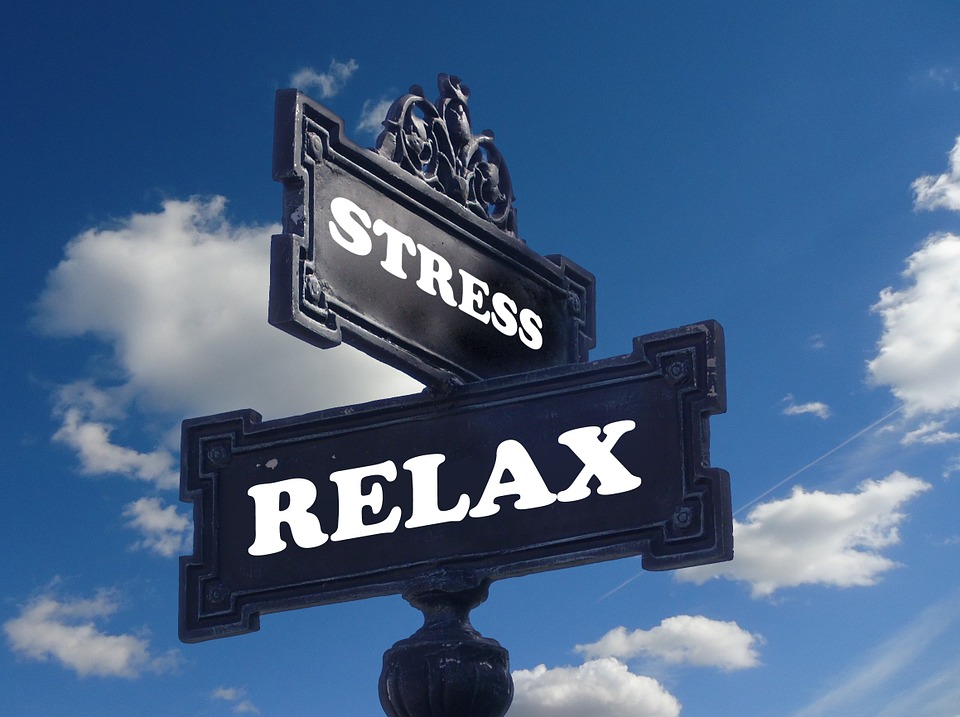Top 3 Causes of Stress and Their Effects on Your Health

We may earn money or products from the companies mentioned in this post.
When it comes to stress, it can have many effects on your health. Sure we all have stress but when it is a chronic daily occurrence, however, it can lead to some serious negative side effects on your health.
Stress is Natural
Stress is the body’s natural defense against real or imagined danger. It flushes the body with hormones to prepare systems to evade or confront danger. This is known as the “fight or flight” response. This is normal and natural when it comes to our bodies protecting us, however, it’s when it isn’t allowed to take a “time out” from stress that our bodies start to suffer.
There are 3 different types of stress — acute stress, episodic acute stress, and chronic stress. The 3 types of stress each have their own characteristics, symptoms, duration, and treatment approaches.
3 Types Of Stress
ACUTE STRESS
Acute stress it the most common form of stress and it usually comes in brief episodes. It is most often caused by reactive thinking. It’s cool to have a little adrenaline rush from something exciting yet it can also come is negative thoughts or feelings like after a disagreement with someone.
Because it is short term, acute stress doesn’t have enough time to do the extensive damage associated with long-term stress. WHEW! Thank goodness for that.
Short-Term Effects of Acute Stress
- Emotional distress — some combination of anger or irritability, anxiety and depression, the three stress emotions.
- Muscular problems including tension headache, back pain, jaw pain and the muscular tensions that lead to pulled muscles and tendon and ligament problems.
- Stomach, gut and bowel problems ( that gut feeling) such as heartburn, acid stomach, flatulence, diarrhea, constipation, and irritable bowel syndrome.
- Elevated blood pressure, rapid heartbeat, sweaty palms, heart palpitations, dizziness, migraine headaches, cold hands or feet, shortness of breath and chest pain.
Acute stress is present on most, if not all, of our lives yet it is very treatable and manageable. You can reverse it with quick relaxation techniques and then go back to your day feeling less stressed again.
These stress relievers can help you to relax and more quickly recover from acute stress.
- Breathing Exercises
- Cognitive Reframing
- Mini-Meditation
EPISODIC ACUTE STRESS
However, there are times when acute stress can cross over into episodic stress. People who frequently experience acute stress, or whose lives present with frequent triggers of stress, have episodic acute stress.
It’s like living in a world of constant pressure and overload. They take on many responsibilities and usually cannot stay organized with so many time demands. These individuals are perpetually in the grips of acute stress overload.
It is common for people with acute stress reactions to be a little short-fused or short-tempered, irritable, anxious and tense. You may say they have a lot of nervous energy.
There are actually 2 main personality types that frequently present with Episodic Acute Stress:
1) “Type A” personality
Type A personality have an excessive competitive drive, aggressiveness, impatience, abrupt, and a sense of time urgency. These personality characteristics often seem to create frequent episodes of acute stress for the Type A individual.
2) The “Worrier”
I’d have to say this tends to be ME!! The worrier presents with almost incessant negative thoughts causing episodic acute stress on physical and mental health. Their thoughts are frequently filled with “What if….” statements that are with projected negative outcomes. They are often diagnosed with generalized anxiety disorder because their worries don’t seem to go away.
Short term side effects of episodic stress:
- Persistent tension headaches
- Migraines, hypertension
- Chest pain, and heart disease, high blood pressure
- Stomach, gut, bowel problems, heartburn, acid stomach, gas, diarrhea, constipation, irritable bowel syndrome (IBS)
- Immune System Compromise: frequent colds/flu, allergies, asthma, and other immune system compromise illnesses.
Do you see where it is getting a little more serious as far as the side effects on your health?
Treatment for Episodic Acute Stress
Episodic acute stress requires intervention on a number of levels, generally requiring professional help, which may take many months.
CHRONIC STRESS
Chronic stress is the most harmful of all 3. This is the constant stress that wears people away day after day, year after year. This type of stress may leave you feeling drained, and can lead to burnout if it’s not effectively managed.
Chronic stress destroys bodies, minds, and lives. If left untreated over a long period of time, it can significantly and often irreversibly damage your physical health and deteriorate your mental health.
Side effects of chronic stress
All of the above side effects from acute and episodic stress can leak down into chronic stress side effects.
- Cardiovascular disease
- Gastrointestinal issues
- Anxiety
- Depression
- AND a host of other conditions.
It becomes much more serious when it is chronic because your body never gets a rest from the stress. These chronic signs and symptoms can result in a physical and mental breakdown that can lead to suicide, violent actions, homicide, psychosis, heart attacks, and strokes.
Treatment for chronic stress
- Exercise Regularly
- Maintain a healthy diet
- Cultivate Supportive Relationships
- Meditate Regularly
- Listen to Music
Getting Help
People with chronic stress may require medical and psychological treatment that includes behavioral and stress management. It’s important not to let your body get to the point of getting so used to being under chronic stress, therefore, you don’t realize or do anything about it until it is too late.
Furthermore, if you continue to feel stress, anxious, overwhelmed, panic, stressed-out, then it might be wise to consult with a licensed therapist who can help you learn how to manage stress effectively. He or she can help you identify situations, thoughts, and behaviors that contribute to your stress and anxiety.
Stressful events are a fact of life. And you may not be able to change your current situation. But you can take steps to manage the impact these events have on you.
You can learn to identify what stresses you and how to take care of yourself physically and emotionally in the face of stressful situations.
Latest posts by Melanie Sobocinski (see all)
- Why Your Metabolism and Hormones May be a Little Slow - November 5, 2020
- My Before and After Story - September 11, 2020
- 7 Changes That Happen When You Don’t Eat Enough - July 16, 2020




